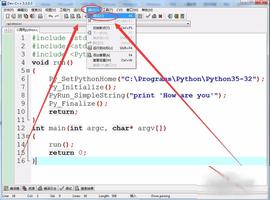详解python函数的闭包问题(内部函数与外部函数详述)
python函数" title="python函数">python函数的闭包问题(内嵌函数)
>>> def func1():
... print ('func1 running...')
... def func2():
... print ('func2 running...')
... func2()
...
>>> func1()
func1 running...
func2 running...
内部函数func2作用域都在外部函数func1作用域之内
如果试图在外部函数的外部调用内部函数将会报错
>>> func2()
Traceback (most recent call last):
File "<stdin>", line 1, in <module>
NameError: name 'func2' is not defined
关于python的闭包问题
如果试图在一个内部函数里对外部作用域(不包括外部函数的外部作用域)的变量进行引用,内部函数就会被认为是闭包
>>> def FuncX(x):
... def FuncY(y):
... return x*y
... return FuncY
对于FuncY函数来说,对在FuncX函数的整个作用域(FuncY函数的非全局作用域的外部作用)的变量x进行引用,自此就可以说FuncY函数就是所谓的闭包
>>> f = FuncX(8)
>>> f
<function FuncY at 0x7f3a436fc2a8>
>>> type(f)
<type 'function'>
>>> f(10)
80
>>> FuncX(7)(8)
56
由于闭包本身是基于内部函数这一概念而来,所以不能在外部函数的外部作用域对内部函数进行调用
>>> FuncY(8)
Traceback (most recent call last):
File "<stdin>", line 1, in <module>
NameError: name 'FuncY' is not defined
既然是基于内部函数这一概念而来,自然对于内部函数来说对引用外部函数作用域内的变量进行修改,将会启动解释器的屏蔽机制
>>> def Func1():
... x = 233
... def Func2():
... x *=x
... return x
... return Func2()
...
>>> Func1()
Traceback (most recent call last):
File "<stdin>", line 1, in <module>
File "<stdin>", line 6, in Func1
File "<stdin>", line 4, in Func2
UnboundLocalError: local variable 'x' referenced before assignment
x*=x的左值此时是内部函数作用域里的变量,此时试图将没有定义的数据进行平方操作,因此报错
>>> def Func1():
... x = 233
... def Func2():
... x = 321
... return x
... return Func2()
...
>>> Func1()
321
内部函数创建x变量并且屏蔽外部函数作用域内的x变量
python3之前的解决办法
应用容器类型(list,tuple之类的)存放外部函数作用域的变量从而不会被屏蔽机制屏蔽掉,因为容器类型不是存放在栈里面
>>> def Func1():
... x = [233]
... def Func2():
... x[0] *= x[0]
... return x[0]
... return Func2()
...
>>> Func1()
54289
python3之后的解决办法:nonlocal关键字
>>> def Func1():
... x = 233
... def Func2():
... nonlocal x
... x *= x
... return x
... return Func2()
...
>>> Func1()
54289
以上所述是小编给大家介绍的python函数的闭包问题详解整合,希望对大家有所帮助,如果大家有任何疑问请给我留言,小编会及时回复大家的。在此也非常感谢大家对网站的支持!
以上是 详解python函数的闭包问题(内部函数与外部函数详述) 的全部内容, 来源链接: utcz.com/z/358134.html



